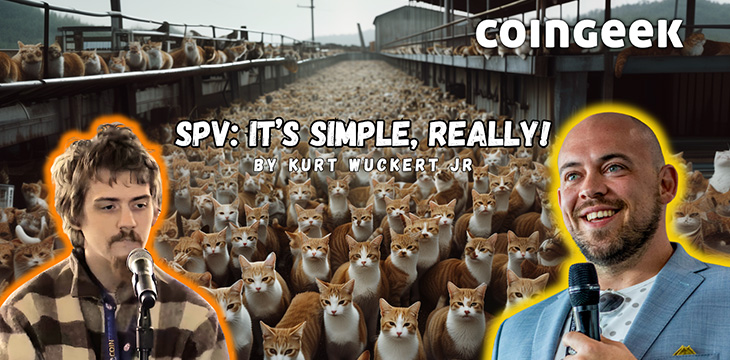
|
Getting your Trinity Audio player ready... |
This article was first published on Dr. Craig Wright’s blog, and we republished with permission from the author.
I want you to imagine for a minute a new form of shares that security companies can issue. The security offering would be one that disincentivises speculative trading. Imagine that day jobbers and speculators are punished for not holding shares for a set minimum time. The existing form of institutional investors, including those in hedge funds that rely on arbitrage-based trading, leads to significant changes in how management operates (Cao et al., 2020).
Using the same idea, value investors would be rewarded. It is known that long-term investments end up producing higher returns than short-term investments. For any large company, the reinvestment in research and development always presents the first cut. As Ke and Zhang (2020) demonstrated, high-frequency trading changes the perception of shares, and leads to differences in management behaviour. Linton and Mahmoodzadeh (2018) demonstrated how high-frequency trading has radically altered the beneficial effects of corporate shareholding when investors are engaged in the company’s activities and not merely seeking to gamble in the short term.
The Alternative
Imagine a share offering including a constitutional provision that some of the money of the sale is returned to the corporation if a share is not held for a sufficient period of time. As a speculative idea, imagine that:
- if the share is traded within one second, 25% of the share is returned to the company;
- if the share is traded within one hour, 10% of the share is returned to the company;
- if the share is traded within one day, 5% of the share is returned to the company;
- if the share is traded after one day and within three months, 1% of the share is returned to the company; and
- for any trade outside any such time frame, the minimal handling fee, which could be 0.01% of the share, would be exchanged, and no more.
Under such a concept, shareholders who maintain ownership for a longer period of time, and plan not just to speculate, are rewarded more. There are no known scenarios where somebody planning on maintaining an investment in a company needs to hold a share for under one second. Equally, even day traders, to close out their position at the end of the day, don’t need to take one-hour-long ownership or less. More importantly, it punishes those who merely speculate and don’t care about the company in any manner.
Crashes and Market Failures
Sornette and Von der Becke (2011) provided evidence that high-frequency trading presents one of the major concerns behind market failures. The rational, long-term investigation into corporate returns is neglected by introducing speculative gambling, favouring a system where traders seek to be first out of the gate. Alternatively, if individuals know that they will suffer a loss if they trade too quickly, the same people will investigate the fundamentals of the corporation in more detail. Throughout the process, long-term investment will lead to more rational decisions.
Davis, Kumiega, and Van Vliet (2013) demonstrated the depth of ethical problems that derive from allowing the investment market to become little more than a gambling house. By introducing controls over the exchange of shares, corporations will be able to focus more on the long term. Unfortunately, many of the most beneficial aspects of a business’ investment do not produce immediate returns. The scenario has led to arbitrage-based investors, looking to short-term news and trading based on information provided by speculative sources, including social media such as Twitter.
As Booker (2019) demonstrated, the ability to speculate in the short term has created new methods of manipulating traded assets. It has allowed the creation of speculative bubbles that derive from the anonymous and pseudonymous introduction of information in a manner that is often illegal but in forms that social media companies such as Twitter allow. Chen et al. (2014) noted the roles of social media as a source of investment advice many years ago. The wisdom of crowds has been replaced by stockbrokers who seek to create bubbles they can profit from by manipulating the price.
Such manipulation impacts not merely the investment processes of the company but society as a whole. In driving money towards finance rather than capital investment, we have created a global world where 50% of all monetary transactions or more are concerned merely with moving money between corporations—not with the development of new capital products. Creating a system that allows long-term investment and punishes those who create speculative bubbles will solve some of the agency problems.
In the past, it was not possible to implement such a system. But, with Bitcoin and the blockchain, we have the ability to create a new form of shares, one that benefits value investors and those who rationally investigate the corporation for the long term. Thus, in structuring the corporation, even management options can be aligned with the long-term creation of wealth. Rather than seeking short-term investments designed to promote the immediate share value and strike price of options, management will be incentivised to create long-term investments in improving corporate stakeholder value, employee relations, and areas such as research and development, that do not fit in with financial modelling using typical figures such as the internal rate of return (IRR) and net present value (NPV).
In place of windfall-based investment desires, individuals will need to look towards the long term. The system would necessitate those who invest in shares monitoring them not by the minute, but over the quarter or a longer period of time. The given examples could easily be changed to favour even longer-term investments. Structured well, it could incorporate audit functions that would encourage long-term investment and capital development as opposed to mere speculation.
References
Booker, A. (2019). Collaborative Speculation and Overvaluation: Evidence from Social Media. University of Arkansas.
Cao, Y., Dong, Y., Lu, Y., & Ma, D. (2020). Does Institutional Ownership Improve Firm Investment Efficiency?. Emerging Markets Finance and Trade, 56(12), 2772–2792.
Chen, H., De, P., Hu, Y. J., & Hwang, B. H. (2014). Wisdom of crowds: The value of stock opinions transmitted through social media. The Review of Financial Studies, 27(5), 1367–1403.
Davis, M., Kumiega, A., & Van Vliet, B. (2013). Ethics, finance, and automation: A preliminary survey of problems in high frequency trading. Science and Engineering Ethics, 19(3), 851–874.
Ke, Y., & Zhang, Y. (2020). Does high-frequency trading reduce market underreaction to earnings news?. Finance Research Letters, 34, 101239.
Linton, O., & Mahmoodzadeh, S. (2018). Implications of High-Frequency Trading for Security Markets. Annual Review of Economics, 10, 237–259.
Sornette, D., & von der Becke, S. (2011). Crashes and High Frequency Trading. Swiss Finance Institute Research Paper, (11–63).

 11-22-2024
11-22-2024


